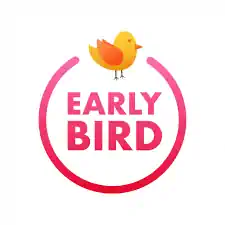Learners practise two to three words per week starting with words with letter-sound corrrespondence and are gradually introduced to words without letter-sound correspondence.
Variations to this suggestion should be made by increasing the number of words in instances where learners can comfortably read most words to take care of differentiated curriculum and learning. For those struggling with certain words, opportunities for more practise should be created.
Specific Learning Outcomes
By the end of the sub strand, the learner should be able to:
- read short words with letter -sound correspondence in preparation for phrasal reading,
- read short words without letter- sound correspondence using word attack skills in preparation for phrasal reading,
- read grade level vocabulary orally, from print and digital formats for enjoyment.
Suggested Learning Experiences
- Join sounds to read short words with letter sound correspondence in pairs then individually.
- Sound out words with letter sound correspondence (phonically regular) for reading.
- Learners read words with letter sound correspondence from either print or digital format (multimedia) for enjoyment.
- Learners watch audio/visual recording of words without letter sound correspondence and use look and say, exposure and other word attack skills to read these words.
- Sound out words without letter sound correspondence (sight words), as modelled.
- Learners recognise and read aloud familiar words in groups, pairs and individually.
- Read from word cards and match to pictures.
- Learners play word bingo.
- Learners play word ladder game by putting words on top of one another as they pronounce.
- Learners sing songs and recite rhymes related to phonics.
- Learners are guided to engage in meaningful word building activities using pocket charts, digital flash cards, charts, flash cards on a word tree.
- Learners play language games like fishing games and other games related to rhmes for example to improving their reading by identifying specific spoken words.
Key Inquiry Question(s)
Core Competences to be developed: Communication and collaboration and self-efficacy, through group work as well as reading activities and games.
Link to PCIs: Life skills as demonstrated through effective communication, confidence and self-esteem are developed through reading)
Links to other subjects: All subjects because they can read words in other subjects.
Suggested non-formal activity to support learning: Reading a variety of words from available genres in different contexts.
Suggested Learning Resources: Realia, charts, pictures/ photographs, models and audio-visual recordings of words that have been learnt.
Link to Values: Unity , Responsibility(as learners play word ladder games)
Suggested Community Service Learning activities: Use available reading resources at home like newspapers to pick out words which can be read to people who cannot read.
Suggested assessment: Oral questions, portfolio, observation
Suggested Formative Assessment Rubric
Exceeding expectation
Learner always recognises and reads long words with letter-sound correspondence, uses word attack skills to read words without letter sound correspondence.
Meeting expectation
Learner mostly recognises and reads short words with lettersound correspondence, grade level vocabulary using word attack skills.
Approaching expectation
Learner sometimes recognises and reads short words with lettersound correspondence, grade level vocabulary using word attack skills.
Below expectation
Learner recognises and reads short words with letter-sound correspondence, grade level vocabulary using word attack skills with a lot of difficulty.
